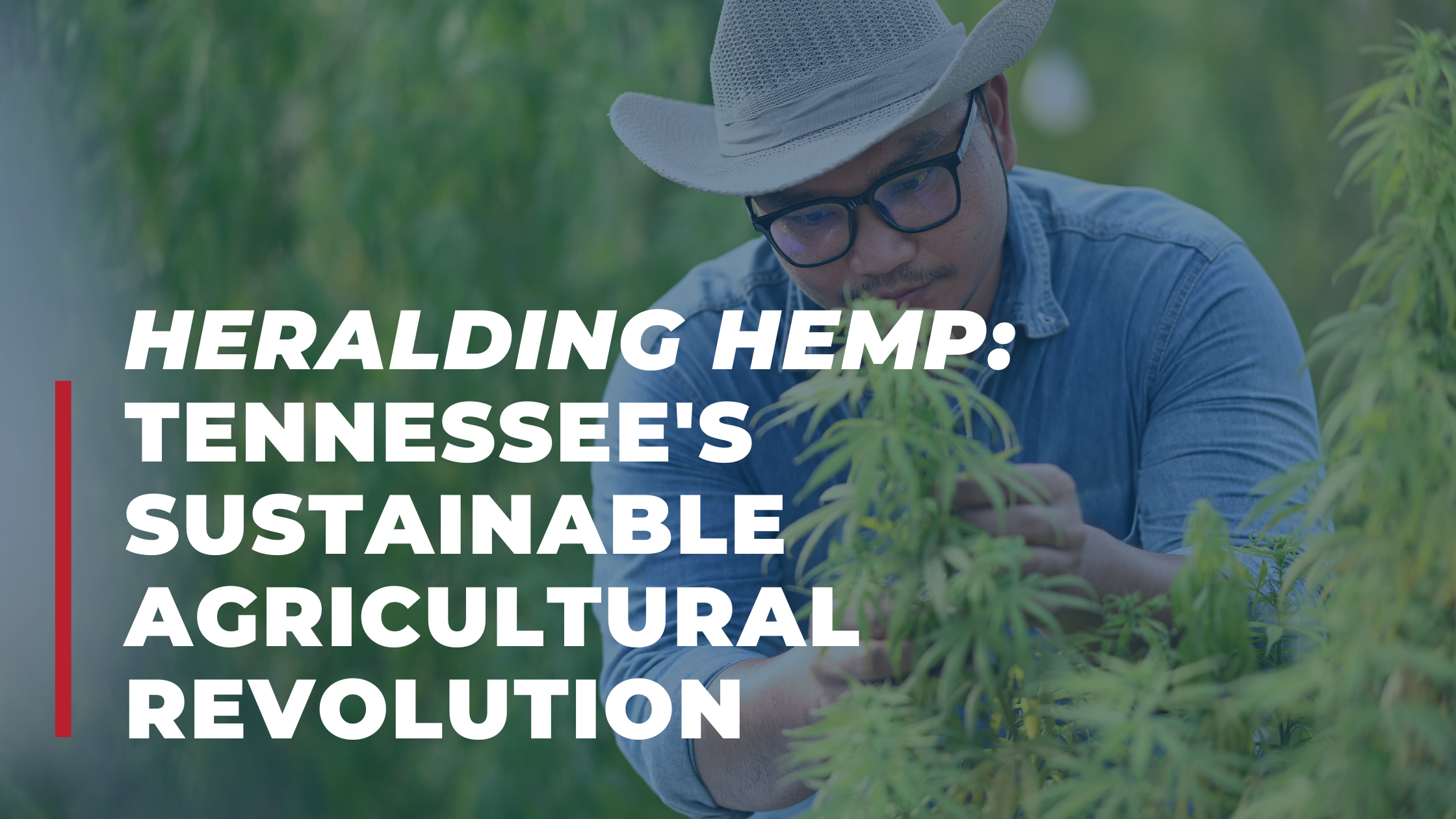Heralding Hemp: Tennessee's Sustainable Agricultural Revolution

Hemp has a long and storied history in Tennessee, dating back to the early 19th century when it was a staple crop for textiles and rope. Today, with changing perceptions and new legislation, hemp is making a comeback, poised to revolutionize sustainable agriculture in the state. But what does the future hold for hemp in Tennessee? Let's explore the innovations, market trends, and opportunities that are setting the stage for this agricultural renaissance.
The Current Legal and Economic Landscape
In recent years, Tennessee has seen significant changes in the legal framework surrounding hemp cultivation. The 2018 Farm Bill, which legalized industrial hemp production in the United States, opened the door for Tennessee farmers to reintroduce hemp into their crop rotations. This new regulatory environment, coupled with a growing market for hemp-based products, has led to a renewed interest in hemp as a viable economic opportunity.
Innovations in Cultivation and Processing
Tennessee is at the forefront of adopting innovative techniques in hemp cultivation and processing. Farmers are experimenting with precision agriculture technologies to optimize yield and quality. Advanced processing methods, including decortication and bio-refinement, are improving the efficiency and sustainability of hemp production. These innovations not only enhance the viability of hemp farming but also create new avenues for product development.
Market Trends and Growing Demand
The demand for hemp-based products is skyrocketing, with applications ranging from wellness and nutrition to textiles and construction. Tennessee's strategic location and agricultural expertise position it as a key player in the burgeoning hemp market. Entrepreneurs and investors are taking note, leading to increased investment in hemp-related ventures and infrastructure.
The Environmental Benefits of Hemp
Hemp is not just economically viable; it's environmentally advantageous as well. Grown with minimal pesticides or herbicides, hemp improves soil health and sequesters carbon, making it a sustainable crop option for Tennessee farmers. Its versatility in producing biodegradable plastics, paper, and even biofuels contributes to a reduced environmental footprint.
Challenges and Opportunities
Despite its potential, the hemp industry in Tennessee faces challenges, such as regulatory hurdles, market volatility, and competition from other states. However, with these challenges come opportunities for innovation and leadership. By fostering collaboration between farmers, researchers, and policymakers, Tennessee can overcome these obstacles and secure its place as a leader in sustainable hemp agriculture.
Insights and Advice
For farmers, entrepreneurs, and environmentalists eyeing the hemp industry in Tennessee, now is the time to act. Invest in education and training to understand the nuances of hemp cultivation. Network with other stakeholders to share knowledge and resources. Stay informed about regulatory changes and market trends to capitalize on emerging opportunities.
Bottom Line
Tennessee is on the cusp of a sustainable agricultural revolution, and hemp is leading the charge. By harnessing the power of innovation and collaboration, the state can position itself as a pioneer in the hemp industry. Don't miss out on this exciting opportunity—join our hemp community for updates, insights, and support as we work together to build a sustainable future for Tennessee.
[Join Our Hemp Community for Updates](#)

